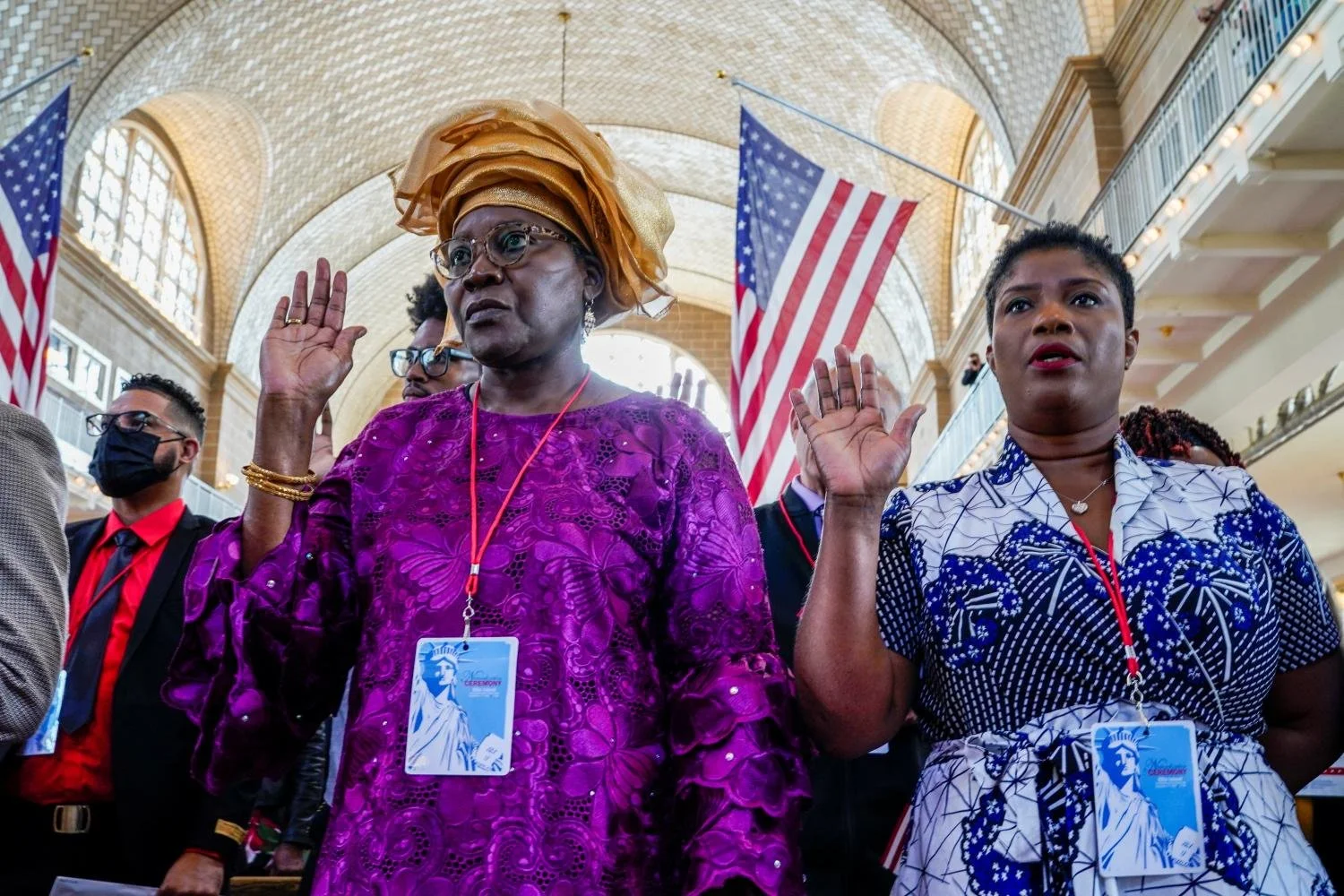If U.S. Immigration are Unfair and Biased, Why Do We Still Immigrate to the United States?
In countless community forums, family WhatsApp groups, and diaspora events, the question keeps surfacing: "If immigration laws are unfair and biased—especially against Black and African immigrants—why do so many people still risk everything to move to the United States?" This question deserves deep reflection, especially for those of us from Sub-Saharan Africa navigating the complex U.S. immigration system.
Understanding the Criticism: Are U.S. Immigration Laws Unfair and Biased?
The United States immigration system has often been criticized for systemic inequities that disproportionately affect African immigrants:
Visa Lottery Limitations: While the Diversity Visa Lottery (DV) has opened doors for many Africans, it's still a gamble. Fewer than 1% of African applicants get selected, and many struggle to meet the post-selection requirements (e.g. proof of funds, education, sponsorship).
Non-Immigrant Visa Rejections: Africans face among the highest denial rates for tourist, student, and work visas. For example, in 2023, U.S. B-1/B-2 visa rejection rates were over 65% for many Sub-Saharan African nations, compared to under 15% for countries like Australia or France.
Skilled Immigration Barriers: Despite rising numbers of African professionals (engineers, nurses, tech workers), the U.S. system—dominated by employer-sponsored visas like H-1B—heavily favors countries with established immigration pipelines. Africans are underrepresented in these programs.
Refugee and Asylum Challenges: Asylum policies often lean toward geopolitical prioritization. For instance, political crises in African countries may receive less asylum recognition compared to similar events in Latin America or Eastern Europe.
Student Visa Constraints: African international students are disproportionately targeted for denials, restrictions, and limited post-study work opportunities. Additionally, most are considered "non-resident aliens" for years—missing out on tax benefits and work programs like OPT and CPT without extra hurdles.
So, Why Do Sub-Saharan Africans Still Immigrate to the U.S.?
Despite these challenges, the pull factors remain compelling—often overwhelming the pushbacks of an unfair system.
1. The Power of Opportunity and Aspiration
For many, the United States still symbolizes possibility. It's not necessarily the "American Dream" of old, but a modern version built on:
Higher Wages and Job Access: Even lower-paying jobs in the U.S. often pay more than professional salaries back home. A nurse in Uganda earning $200/month could make $4,000/month in the U.S.
Educational Advancement: U.S. universities remain among the best in the world. Despite visa hurdles, African students persist—viewing education as a pathway to global mobility.
Tech and Entrepreneurial Freedom: African innovators often seek out U.S. startup ecosystems, investment opportunities, and tech incubators that are scarce or underfunded in their home countries.
2. Family, Community, and Diaspora Ties
Family Reunification: One of the biggest drivers of migration is family. Once a few family members settle, they sponsor others through legal channels—however slow or difficult.
Diaspora Networks: Established African communities in cities like Dallas, Minneapolis, Washington D.C., and Atlanta offer soft landings, support systems, and cultural familiarity.
3. Political Stability and Safety
For those fleeing conflict or instability, even a flawed immigration system is better than none. The U.S. offers at least a legal path to apply for asylum, temporary protected status (TPS), or humanitarian parole—even if approval rates are inconsistent.
4. Global Inequality and Lack of Local Infrastructure
We must also examine the root causes:
Economic Fragility: Many African countries face inflation, youth unemployment, corruption, and a lack of economic inclusion.
Education-Employment Gap: Young Africans with degrees often find no job opportunities. Emigration becomes a necessity, not a choice.
Health and Social Services: Access to reliable healthcare, special needs education, and support systems are limited at home, driving families to emigrate for their children’s futures.
5. Hope Against the Odds
There’s a cultural resilience in African immigrants—an unshakable belief in “tukole” (let’s work). Many recognize the system is unfair, but they also believe they can beat it. This spirit has birthed African doctors, professors, entrepreneurs, and cultural icons in the diaspora who started with nothing.
What Can Be Done?
At Tukole Foundation, we believe in both advocacy and action:
Advocate for Reform: Policies must be more inclusive and equitable. The U.S. must reimagine its immigration priorities to better accommodate the changing global south and acknowledge African talent.
Create Alternatives at Home: We are building economic and educational systems that give Africans more reasons to stay, thrive, and build wealth locally. That’s why we support diaspora investment, local production, and cultural capital.
Support Smart Migration: We're also helping people navigate existing immigration systems with better tools—scholarship navigation, diaspora sponsorship, and legal guidance through initiatives like the Tukole Diaspora Student Advocacy and Diaspora Legal Bridge Services.
Conclusion
Yes, the U.S. immigration system is often perceived as being unfair and biased—but that’s only part of the story. Africans from Sub-Saharan Africa continue to immigrate not because they are naïve to the risks and challenges involved, but rather because they are bold and courageous enough to pursue the slimmest glimmer of hope at transformation and a better life.
At Tukole, we don't just ask "Why are they leaving?" We ask "How can we make staying, returning, or moving smarter and more empowering?"


